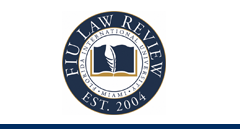Alternate Title
The Child Vanishes: Justice Scalia’s Approach to the Role of Psychology in Determining Children’s Rights and Responsibilities
Keywords
Scalia, children, psychology, best interests, tradition
Abstract
Justice Scalia’s attitudes about children and psychology reveal fascinating patterns in his thinking about the rights, responsibilities, needs, and experiences, of children. With his famous wit and acerbic style fully on display, Justice Scalia’s opinions across various legal doctrines demonstrated hostility to the science of psychology and its practitioners, as well as a callous attitude towards children’s trauma. Contemptuous of a best- interests analysis and the professionals who counsel about those interests, Justice Scalia instead emphasized parental and state power over children and tended to advocate for child protection only when it limited children’s agency and freedom. This article demonstrates how in Justice Scalia’s jurisprudence the child vanished and issues of trauma or psychological need were ignored or deemed irrelevant. Justice Scalia’s disdainful attitudes dovetailed with his general interpretive approach stressing tradition, history, originalism and respect for authority. The intersection of children and psychology in Justice Scalia’s jurisprudence is relevant today because three new Justices have proclaimed themselves s acolytes of Justice Scalia’s interpretive methods. Although they might not share Justice Scalia’s deeply negative attitudes toward psychology or the rights of children, their adherence to his judicial philosophy may lead to similar results. In considering Justice Scalia’s deep disdain for psychology, particularly when it was used to expand the rights of children, this Article revisits Brown vs. Board of Education, which relied extensively on psychology, seeking to avoid stigma and trauma for children. Additionally, the Article raises questions about the correct role of psychology and other social sciences. Finally, this Article offers a different vision of how courts should relate to children by listening to them, guarding their psychological health, respecting their rights and taking their experiences seriously.
Recommended Citation
Aviva Orenstein, The Child Vanishes: Justice Scalia’s Approach to the Role of Psychology in Determining Children’s Rights and Responsibilities, 18 FIU L. Rev. 61 (2023), https://doi.org/10.25148/lawrev.18.1.7.





